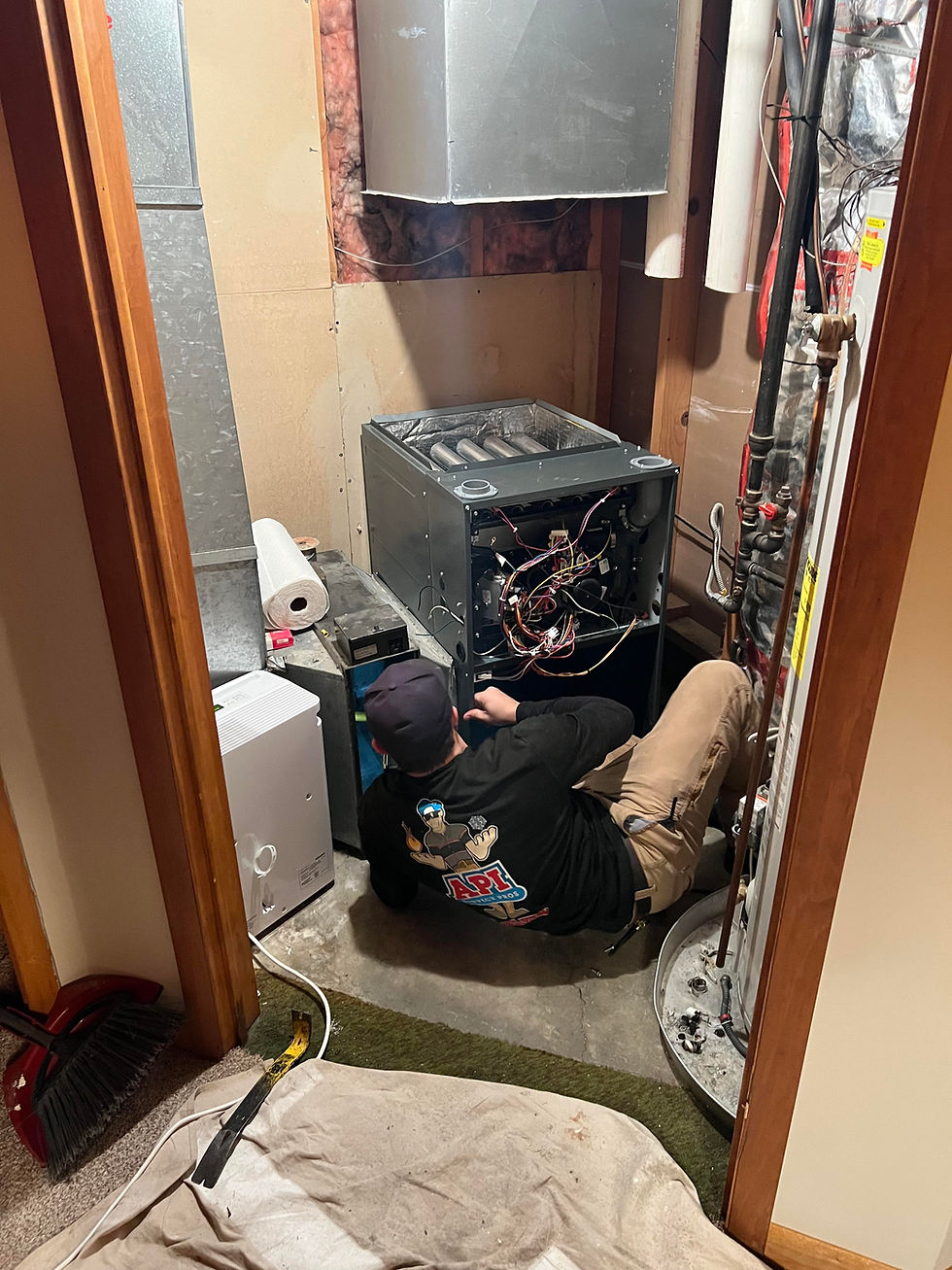11 Signs Your Furnace May Need Repaired
- API Service Pros

- Oct 10, 2023
- 2 min read
A malfunctioning furnace can lead to discomfort and safety hazards in your home. It's important to recognize signs that indicate your furnace may need repair. Here are some common signs to watch out for:
1. Uneven Heating: If some rooms in your home are significantly warmer or colder than others, it could be a sign of ductwork issues or problems with the furnace's blower or distribution system.
2. Increased Energy Bills: A sudden and unexplained spike in your heating bills can indicate that your furnace is not operating efficiently. This could be due to clogged filters, worn-out components, or other issues.
3. Strange Noises: Unusual noises coming from your furnace, such as banging, popping, rattling, or squealing, can be a sign of mechanical problems. These noises may indicate issues with the blower motor, burner, or other internal components.
4. Frequent Cycling: If your furnace turns on and off more frequently than usual (short cycling), it may be struggling to maintain a consistent temperature. This can be caused by various issues, including a faulty thermostat, a clogged air filter, or a malfunctioning heat exchanger.
5. Weak or No Heat: If your furnace is blowing cool or lukewarm air, or if it's not producing heat at all, there could be a problem with the ignition system, the pilot light, the gas supply, or the heat exchanger.
6. Yellow Pilot Light: A properly functioning pilot light should be blue. If it appears yellow or flickers constantly, it may indicate a combustion problem, such as a lack of oxygen or a gas supply issue.
7. Unpleasant Odors: Foul or unusual odors coming from the furnace, such as a persistent burning smell or a musty odor, can be a sign of a serious issue. It could be due to overheating, a clogged filter, or even a gas leak, which requires immediate attention.
8. Excessive Dust or Soot: If you notice an excessive buildup of dust or soot around the furnace or in the vents, it may indicate poor combustion, which can be a safety hazard.
9. Thermostat Issues: If your thermostat is not responding correctly, doesn't maintain the desired temperature, or has erratic behavior, it could be the source of heating problems.
10. Age of the Furnace: Furnaces have a limited lifespan, typically around 15-20 years. If your furnace is reaching or exceeding this age, it may be more prone to breakdowns and require more frequent repairs.
11. Carbon Monoxide Detector Alerts: If your home has a carbon monoxide detector and it goes off, it could signal a carbon monoxide leak, which is a potentially life-threatening emergency. Evacuate your home immediately and call for professional help.
If you notice any of these signs or experience other unusual behavior with your furnace, it's essential to schedule a professional inspection and repair. Regular maintenance can also help prevent many of these issues and ensure your furnace operates efficiently and safely.







